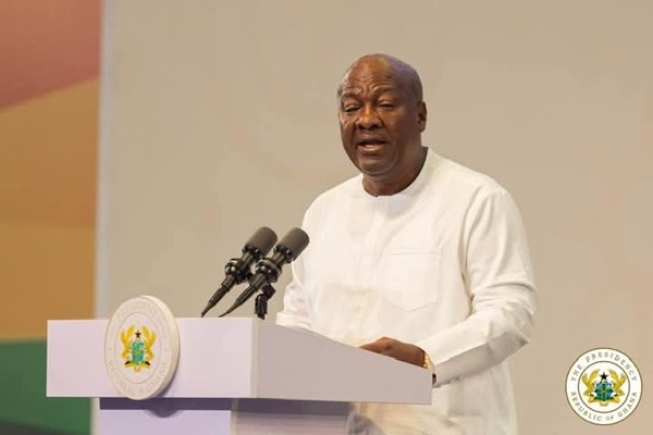President John Dramani Mahama has announced plans by the government to increase funding for Ghana’s leading research centres, particularly in agriculture, health, and genetic medicine, to drive innovation and address key national challenges.
Speaking at the High-Level Forum on Africa’s Higher Education Centres of Excellence (ACE) Programme in Accra on April 7, 2025, Mr Mahama said the government’s decision was in response to growing concerns over the sustainability of critical research projects following the withdrawal of some international funding.
The President mentioned the West Africa Centre for Crop Improvement (WACCI), the West African Centre for Cell Biology of Infectious Pathogens (WACCBIP), and the West African Genetic Medicine Centre (WAGMC), all based at the University of Ghana as institutions whose work continues to contribute to solving both local and regional problems.
“Ghana has been privileged to host some of the most impactful Centres of Excellence under the ACE Programme,” Mr Mahama said. He noted that these centres had made progress in improving food production, advancing health research, and tackling genetic disorders such as sickle cell disease.
Mr Mahama also spoke about the recent withdrawal of $156 million in funding from WACCBIP by the United States Agency for International Development (USAID). He disclosed that the government had stepped in to close the funding gap.
“I personally assured the Vice-Chancellor of the University of Ghana that we would make up for the loss of USAID funding from our own budget. I am pleased to report that the Ministry of Finance has fully provided for the $156 million that was pulled out, to enable the critical research to go ahead,” Mr Mahama told the gathering.
The President said Ghana must reduce its dependence on foreign aid to sustain its research institutions. While donor support remained important, he stressed the need for the government to take greater responsibility for funding innovation, especially in areas that directly affect the lives of Ghanaians.
“Our innovation in these centres must have tangible impacts on the communities we serve. We must ensure that academic work aligns with national development priorities,” Mr Mahama said.
He urged that research be localised so that its outcomes address the real needs of the people, particularly in agriculture and health.
Mr Mahama also called for stronger cooperation between universities, industry, and government agencies to make research results more applicable in real-world situations. He said such partnerships would also help to mobilise resources and improve the sustainability of research centres in the country.

